Thanks to the Benedetto XVI Forum for the translation.
Cardinal Levada, Venerated Brothers in the Episcopate, Distinguished Professors and dear Co-workers:
It is with joy that I welcome you at the end of your annual plenary session. I wish first of all to express my gratitude for the words of tribute in behalf of everybody that you, Eminence, as president of the International Theological Commission addressed to me.
The work of this eighth 'quinquennial' membership of the Commission, as you recalled, considered the following topics of great importance: theology and its methodology; the question of the one God with respect to the three monotheistic religions; and the integration of the social doctrine of the Church in the wider context of Christian doctrine.
"The love of Christ impels us, once we have come to the conviction that if one died for all; therefore, all have died. He indeed died for all, so that those who live might no longer live for themselves but for him who for their sake died and was raised" (2Cor 5,14-15).
How can we not feel the same as this beautiful reaction of the apostle Paul to his encounter with the Risen Christ? It is this experience that is at the root of the three important topics that you examined in depth in your just-concluded plenary.
Whoever has discovered the love of God in Christ, infused with the Holy Spirit in our heart, wishes to better know Him by whom he is loved and whom he loves. Knowledge and love sustain each other reciprocally.
As the Fathers of the Church affirmed, whoever loves God is urged to become, in a certain sense, a theologian - one who speaks to God, who thinks of God and seeks to think with God, and the professional work of theology is for some a vocation with great responsibility before Christ, before the Church.
To be able to professionally study God is to be able to speak about him : Contemplari et contemplata docere (S. Tommaso d’Aquino, Super Sent., lib. 3 d. 35 q. 1 a. 3 qc. 1 arg. 3) - to contemplate and to teach others to contemplate - is a great privilege.
Your reflection on the Christian vision of God can be a valuable contribution both for the life of the faithful and for our dialog with believers of other religions and even with non-believers.
In fact, the word 'theology' itself reveals this communicative aspect of your work: in theology, we seek, through the [Cllogos, to communicate that which 'we have seen and heard' (1Jn 1,3).
But we know that the word logos hsd s much larger significance, that it also includes the sense of ratio, reason. This fact leads us to a second point which is very important.
We can think of God and communicate what we think because he has endowed us with reason in harmony with his nature. That is why the Gospel of John begins with the affirmation, "In the beginning was the Word... and the Word was God" (Jn 1,1).
Welcoming this Logos - this divine thought - is ultimately also a contribution to peace in the world. Indeed, to know God in his true nature is also the certain way to assure peace. A God who cannot be perceived as a source of forgiveness, justice and love, cannot be a light on the path to peace.
Since man always tends to interlink what he knows, the knowledge of God is also organized systematically. But no theological system can endure if it is not permeated by the love of her divine 'Object", which in theology should necessarily become 'the subject' which speaks to us and with which we are in a relationship of love. Thus, theology should always be nourished by dialog with the divine Logos, Creator and Redeemer.
Besides, no theology is such unless it is integrated into the life and reflection of the Church through time and space. Yes, it is true that to be scientific, theology should argue in a rational way, but it must also be faithful to the nature of ecclesial faith: centered on God, rooted in prayer, in communion with other disciples of the Lord, guaranteed by communion with the Successor of Peter and the whole episcopal college.
This acceptance and transmission of the Logos also has as a consequence that the rationality of theology itself helps to purify human reason, liberating it of certain prejudices and ideas which exercise a strong influence on the thought of every era.
It is necessary, on the other hand, to point out that theology always lives in continuity and in dialog with believers and the theologians who came before us - since ecclesial communion is diachronic, so is theology.
The theologian never starts from zero, but considers the Fathers and theologians of the entire Christian tradition as his teachers. Rooted in Sacred Scripture, read with the Fathers and the Doctors, theology can be a school for holiness, as Blessed John Henry Newman showed us. To make others discover the permanent value of the wealth transmitted by the past is not a small contribution by theology to the concert of sciences.
Christ died for everyone, even if not everyone does not know or accept it. Having received the love of God, how can we not love those for whom Christ gave his own life? "He gave his life for us; therefore, we too should give our life for our brothers (1Jn 3,16).
All this brings us to the service of others in the name of Christ. In other words, the social commitment of Christians necessarily derives from the manifestation of divine love. Contemplation of the revealed God and charity for our neighbor cannot be separated, even if they are lived through different charisms.
In a world which often appreciates many gifts from Christianity - as, for example, the idea of democratic equality - without understanding the root of its own ideals, it is particularly important to show that the fruits die if they are cut off from the root of the tree.
In fact, there is no justice without truth, and justice does not develop fully if its horizon is limited to the material world. For us Christians, social solidarity always has the perspective of eternity.
Dear theologian friends, our meeting today manifests in a valuable and singular manner the indispensable unity that should reign between theologians and pastors. One cannot be a theologian in solitude: theologians need the ministry of the pastors of the Church, just as the Magisterium needs theologians who perform their service to the utmost, with all the asceticism that this implies.
Through your Commission, I therefore wish to thank all theologians and encourage them to have faith in the great value of their task. In extending my best wishes for your work, I affectionately impart my Blessing
.
Saturday, December 4, 2010
Full Text of Pope Benedict 2010 Address To International Theological Commission
Posted by
James H
at
12/04/2010 11:12:00 AM
![]()
Labels: Catholic, Pope Benedict, vatican
Subscribe to:
Post Comments (Atom)

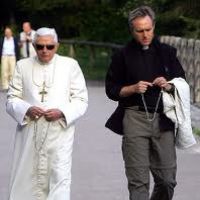

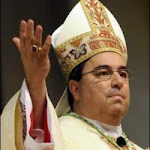



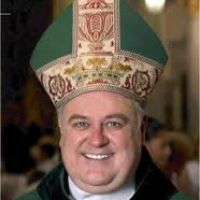
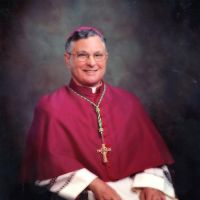
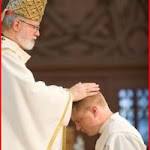


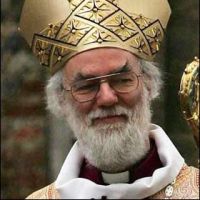
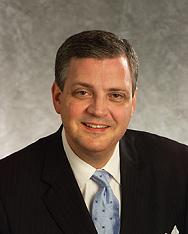
2 comments:
I have to say that I like your uniqueness. You have an intriguing yet nice writing style.
Great article.Thanks for sharing.
los angeles seo agency
Post a Comment